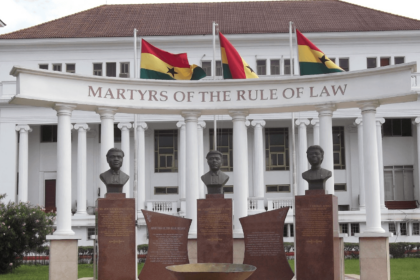
Ghana, a nation renowned for its stability and rich cultural heritage, is governed by a robust legal system grounded in its Constitution, statutory laws, and traditional customs. For individuals and businesses engaging with Ghana’s legal framework, understanding its core elements is essential.
The Ghanaian Constitution: A Cornerstone of Governance
At the heart of Ghana’s legal framework lies the 1992 Constitution, which serves as the supreme law of the land. It guarantees fundamental human rights and freedoms, defines the structure of government, and outlines the roles of the executive, legislature, and judiciary. All laws and practices in Ghana must align with the Constitution, ensuring a democratic and equitable society.
The Role of Statutory and Customary Law
Ghana operates under a hybrid legal system, incorporating statutory law derived from parliamentary acts and customary law rooted in the traditions of various ethnic groups. Statutory laws address areas such as taxation, commerce, and criminal offenses, while customary laws often govern issues like land ownership, marriage, and inheritance. Notably, customary laws must adhere to constitutional principles, ensuring they do not infringe on rights or perpetuate discrimination.
Judiciary and Dispute Resolution
Ghana’s judiciary plays a critical role in interpreting and enforcing the law. The system comprises various courts, including the Supreme Court, Court of Appeal, and High Court, each with specific jurisdiction. Additionally, alternative dispute resolution (ADR) methods such as arbitration and mediation are gaining traction, offering quicker and less adversarial solutions to conflicts.
Business and Legal Considerations in Ghana
For entrepreneurs and investors, understanding Ghana’s regulatory environment is crucial. The Companies Act, 2019 (Act 992) governs company registration and operations, ensuring transparency and accountability. Meanwhile, the Ghana Investment Promotion Centre (GIPC) Act provides incentives and protections for foreign investors. Adherence to tax laws, labor regulations, and environmental standards is also vital for business success.
Promoting Access to Justice
Efforts are ongoing to improve access to justice in Ghana. Initiatives like the Legal Aid Commission provide free or subsidized legal services to marginalized individuals. Technology is also playing a transformative role, with digitized court systems and online resources enhancing efficiency and accessibility.
Conclusion
Ghana’s legal system is a dynamic blend of tradition and modernity, reflecting its diverse culture and democratic values. Whether navigating the intricacies of customary law or adhering to statutory requirements, understanding the legal framework is key to fostering fairness and advancing development. As Ghana continues to evolve, its legal system remains a pillar of stability and progress.



